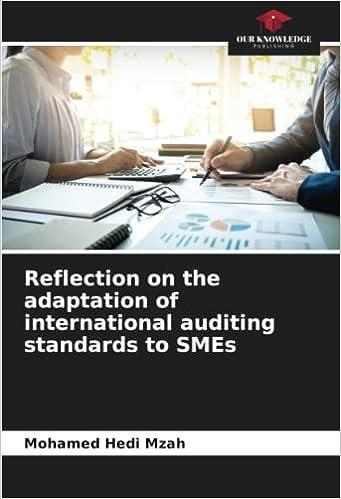
1-1 Examine the CAFR. Download a copy of the most recent comprehensive annual financial report (CAFR) for a city of your choice. Many cities with 25,000 or more population provide Internet access to their CAFRs.* Famil- iarize yourself with the city's CAFR and reread the section in this chapter titled "Financial Reporting of State and Local Governments." Be prepared to discuss in class the items suggested below. a. Introductory Section Read the letter of transmittal or any narrative that accompanies the financial statements. Does this material define the primary government? Does the introductory section discuss the government's financial condition at the bal- ance sheet date? Does it discuss the most significant changes in financial condition that occurred during the year? Does it alert the reader to forth- coming changes in financial condition that are not as yet reflected in the financial statements? Do the amounts reported in the letter of transmittal or other narrative agree with amounts in the statements and schedules in the financial section? Does the introductory section include a list of principal officials? An organization chart? A reproduction of a Certificate of Achieve- ment for Excellence in Financial Reporting from the Government Finance Officers Association (GFOA)? Assuming the government follows GASB standards, compare the information in the letter of transmittal with that in the management discussion & analysis (MD&A). b. Financial Section (1) Audit Report. Are the financial statements in the report audited by an inde- pendent CPA, state auditors, or auditors employed by the government being audited? Does the auditor indicate who is responsible for preparing the financial statements? Does the auditor express an opinion that the state- ments are "in accordance with generally accepted accounting principles applicable to governmental entities in the United States or some other phrase? Is the opinion qualified in some manner, disclaimed, or adverse? Does the auditor indicate that the opinion covers the basic financial state- ments or that plus combining statements? (2) Basic Financial Statements. Does the CAFR contain both government- wide financial statements and fund statements? (3) Notes to the Financial Statements. How many notes follow the required basic financial statements? Is there a phrase at the bottom of the basic financial statements indicating that the notes are an integral part of the financial statements? (4) Other Supplementary Information. Following the notes to the financial statements, does the CAFR provide other supplementary information, such as combining and individual fund statements? (5) Management's Discussion and Analysis (MD&A). Does the CAFR con- tain an MD&A? If so, where is it located and what type of information does it contain? c. Statistical Tables Examine these tables so that you can refer to them in discussions accompa- nying subsequent chapters. For example, is multiyear information provided about financial trends, revenue capacity, debt capacity, demographic and eco- nomic trends, and operating activities







